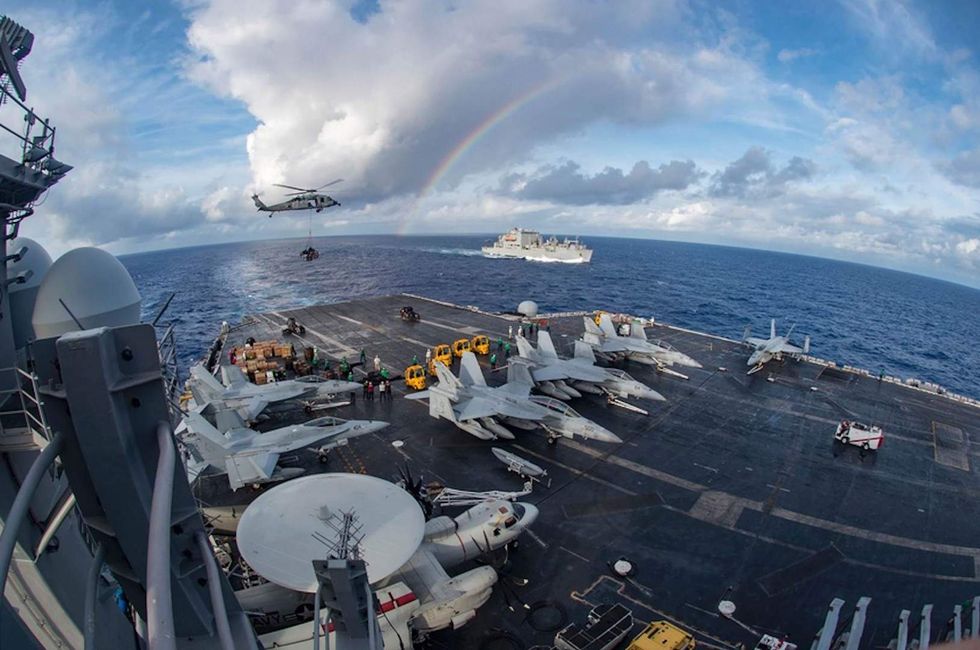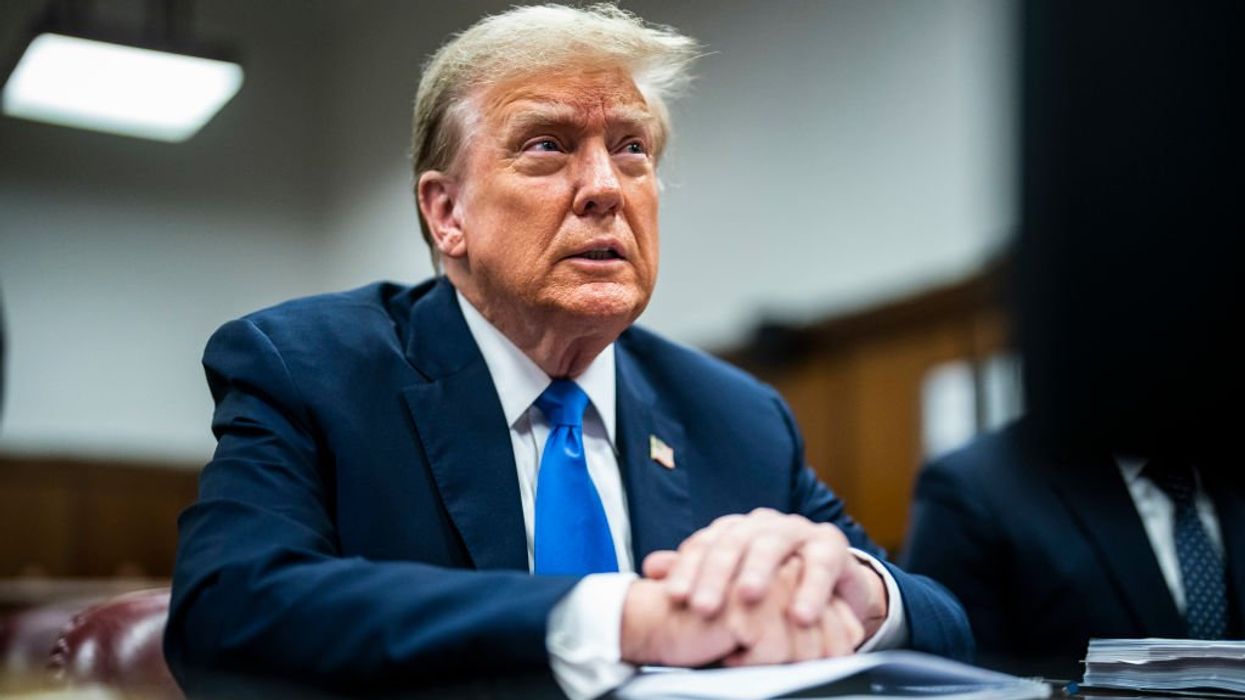The United States deployed the aircraft carrier USS Carl Vinson to patrol the South China Sea Saturday as President Donald Trump continued to rankle Chinese leadership over issues such as trade, the "One-China Policy" and the maritime territorial rights of China, according to a U.S. Navy statement.
The deployment was described as a "routine operations" mission last week; however, a destroyer and warplanes accompanied the carrier on and the move comes at a time of increasing tension between the U.S., China and other nations over China's aggressive behavior in the South China Sea.
According to NBC News, China has disagreements over their territorial claim of islands and routes in the South China Sea, which is one of the busiest sea lanes in the world and is crucial to global trade.
China has been fortifying islands in the sea lane in order to expand military bases there. Beijing insists this is its legal right and justifies the expansion as a way to protect the trade lane. U.S. officials see the island building as China's attempt to assert military dominance over the region.
In January, White House press secretary Sean Spicer said the U.S. would "stand up" to China's military expansion in the South China Sea. One day later, Lu Kang, a senior official with the Chinese foreign ministry, told NBC News the U.S. should stay out of China's construction project and its relationship with its neighbors. "There might be a difference" of opinion regarding who has sovereignty over the islands in the South China Sea, Kang said. "But that's not for the United States" to get involved in.
The Trump administration has also been critical of the "One-China Policy," a long-standing policy that recognizes China's claim to Taiwan as a renegade province. Trump placed a diplomatic call to Taiwanese president Tsai Ing-wen immediately after winning the 2016 election, breaking with decades of foreign policy and angering Chinese government officials. Following a public exchange of unpleasantries from both nations, Trump backed off his earlier refusal to accept the policy after a phone call with China's President Xi Jinping.
However, according to NBC, the relationship between the countries remains unstable. "The Chinese press, which often reflects the government viewpoint, has been particularly harsh toward Trump, calling him 'reckless,' 'unfit to lead a superpower,' and 'as ignorant as a child' regarding foreign policy," NBC reports.



